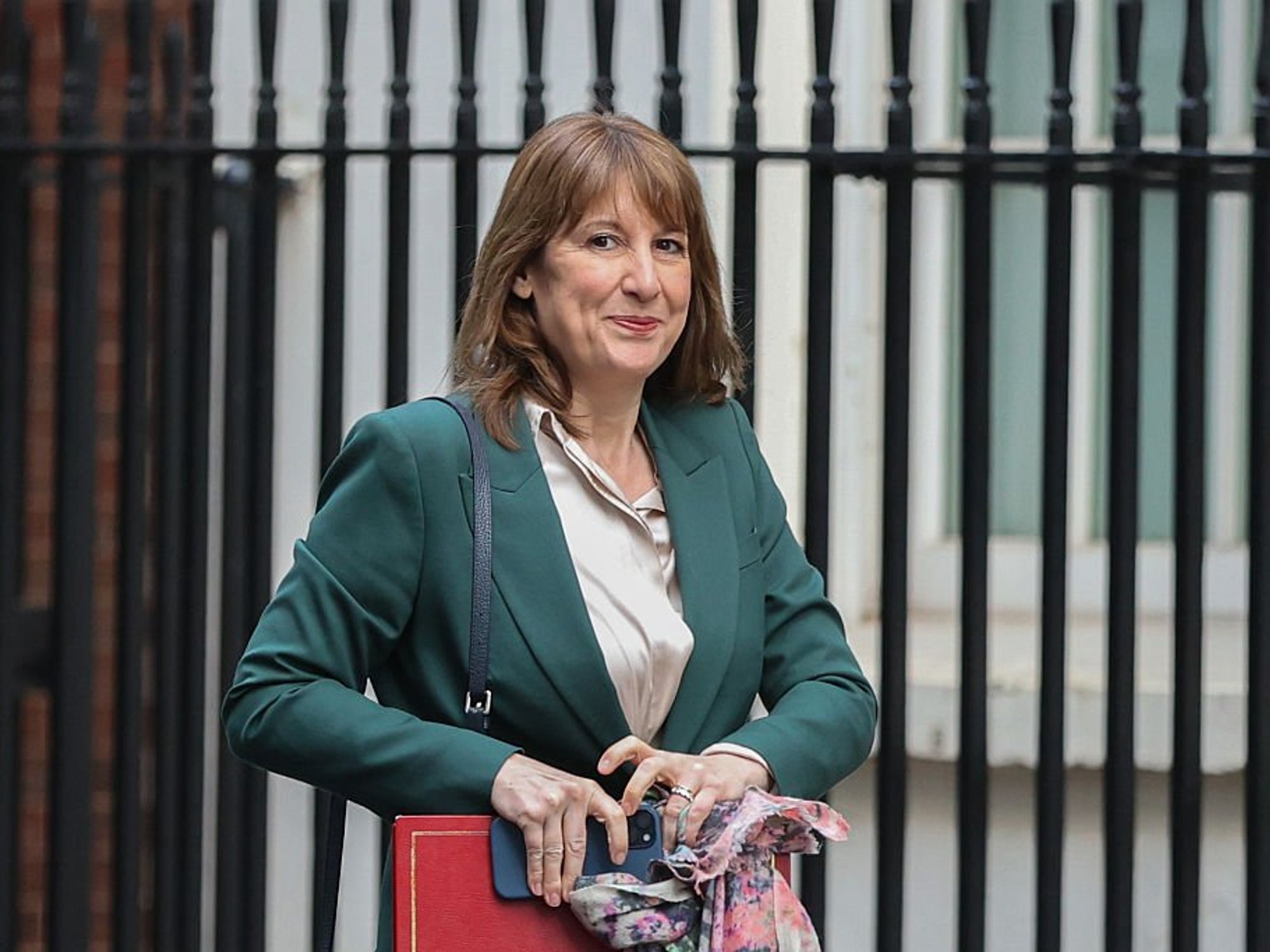The Church of England's most senior bishop seems to have forgotten that broken borders enable evil - Miriam Cates
The Archbishop should recognise that secular authorities have a moral duty to punish those who break the law, writes the former Conservative MP and GB News presenter
Don't Miss
Most Read
Trending on GB News
Last week the most senior leader in the Church of England issued a scathing rebuke to Reform UK’s Nigel Farage, criticising his party’s plans to deport those who have illegally entered the UK back to their home countries.
Speaking to The Mirror newspaper, Archbishop of York Stephen Cottrell said that the proposals are “beneath us as a nation” and that they contradicted the longstanding “British way” of offering compassion and understanding to those fleeing war, violence and persecution.
Cotterell added that the UK “cannot simply close the door” on people seeking refuge, suggesting that providing shelter to those escaping conflict is both a Christian and British tradition.
I am no theologian, but I am a practicing Christian and I am a member of my local Anglican church.
I profoundly disagree with the Archbishop of York, both in his understanding of “British tradition” and in his assertion that to deport illegal migrants is somehow “unchristian”.
Like a number of Church of England Bishops, Cotterell is demonstrating that he is more influenced by a globalist liberal political philosophy than a common understanding of the bible.
Of course, it is right – and Christian – that all people should be treated humanely. Christians believe that mankind is made in the image of God – literally that we carry the nature of the divine – and it follows that we must uphold the value of every human life and refrain from cruelty.
Jesus taught his disciples to love others as we love ourselves, and to “go the extra mile” for our “neighbours,” those with whom we personally come into contact.
 The Church of England's most senior bishop seems to have forgotten that broken borders enable evil - Miriam Cates |
The Church of England's most senior bishop seems to have forgotten that broken borders enable evil - Miriam Cates | Getty Images
But these instructions to demonstrate compassion and sacrificial love to others were made to individual Christian believers, not to governments or institutions.
The mistake made by Cottrell and many of his colleagues is to assume these personal instructions also apply to political authorities, and to believe that governments – like individuals – should just “turn the other cheek” when their country is wronged.
Unlike other religions, Christianity recognises the separation between the sacred and the secular.
When a religious leader asked Jesus whether the Jews should pay taxes to the occupying Roman emperor, Jesus asks whose face is on the coins.
“Caesar” comes the reply; to which Jesus responds that we should “give to Caesar what is due to Caesar and to God what is due to God” (Mark 12:17).
This is interpreted by scholars to mean that although individual Christian believers belong to God and should uphold his law, we also owe allegiance to and should support the role of secular political authorities in their governing role.
The bible doesn’t stop there in its teachings on the role of government. Christians are told, “Everyone must submit to governing authorities. For all authority comes from God” (Romans 13:1), suggesting that, although of course some governments are better than others, the responsibility to uphold law and order is a God-given one.
The bible also teaches that governors are sent by God to “punish those who do wrong and to commend those who do right” (1 Peter 2:14).
This punishment clearly includes physical force, as St Paul writes that “rulers do not bear the sword for no reason. They are God’s servants, agents of wrath to bring punishment on the wrongdoer.” (Romans 13:4).
Those who come to Britain illegally are committing a crime, just like those who rob and steal. People who commit these crimes may have very understandable reasons for doing so, and they may themselves be victims of crime.
It is true that many illegal immigrants crossing from France originate from countries riven by appalling poverty and violence, just as it is true that many British people who rob and steal have had traumatic childhoods.
But, according to the Bible at least, compassion for the individual is not a reason for Governments to fail to uphold – using force if necessary - the boundaries that keep us all safe.
Boundaries are, after all, a Biblical concept. The law that God gave to the Israelites in the Old Testament – including the Ten Commandments – is essentially a series of boundaries that are designed to promote a safe and flourishing society.
Instructions such as ‘do not kill’, ‘do not steal’, and ‘honour your father and mother’ all establish the conditions under which families and society can prosper. But there is little point in setting boundaries if there is no mechanism to uphold them.
Hence, the Old Testament also lays out the punishments that should be administered when the law is breached. We only need to look at ‘failed states’ such as Syria or Lebanon to see the suffering caused when lawlessness is allowed to take hold.
A border is like any other boundary - legal or moral- that is designed to keep us safe.
Governments that can’t or won’t maintain those boundaries are failing in their responsibilities to the people they govern.
No one is suggesting that illegal immigrants should be starved or tortured; of course, they must be treated humanely.
But rewarding illegal immigrants with hotel accommodation, medical services, and all but a guarantee that they can remain in Britain indefinitely is not just foolishness; it is enabling evil.
The trafficking and exploitation of people across continents is being actively encouraged by Britain’s failure to secure its borders by deporting those who breach them. And when resources are limited, prioritising the needs of foreign nationals over British nationals is a clear dereliction of duty by those in authority. Christians can have compassion for those in need while simultaneously supporting the Government to uphold the law.
Good parents have compassion for their children when they break the rules, but are nevertheless consistent in enforcing firm boundaries.
However much a child has been provoked, it is not compassionate to continue to allow him to kick his younger brother. Even if force is required, that child must be prevented, removed and punished.
In the same way, it is not kind, loving or Christian to continue to fail to remove the tens of thousands of migrants who – however compelling their personal stories – have breached Britain's borders and laws to get here.
Sadly, like so many establishment figures, Stephen Cottrell seems to have forgotten that the idea of a nation is a biblical one, with the ancient kingdom of Israel perhaps the first example of a nation state with defined borders and no imperial ambitions. Incidentally, while Israel was told to show compassion to the foreigner (e.g. Exodus 23:9), the foreigner was also expected fully to integrate, including into the Jewish religion and customs.
As currently the most senior figure in the Church of England, the Archbishop of York should recognise that secular authorities have a moral duty to punish those who break the law - be they from our own country or abroad.










